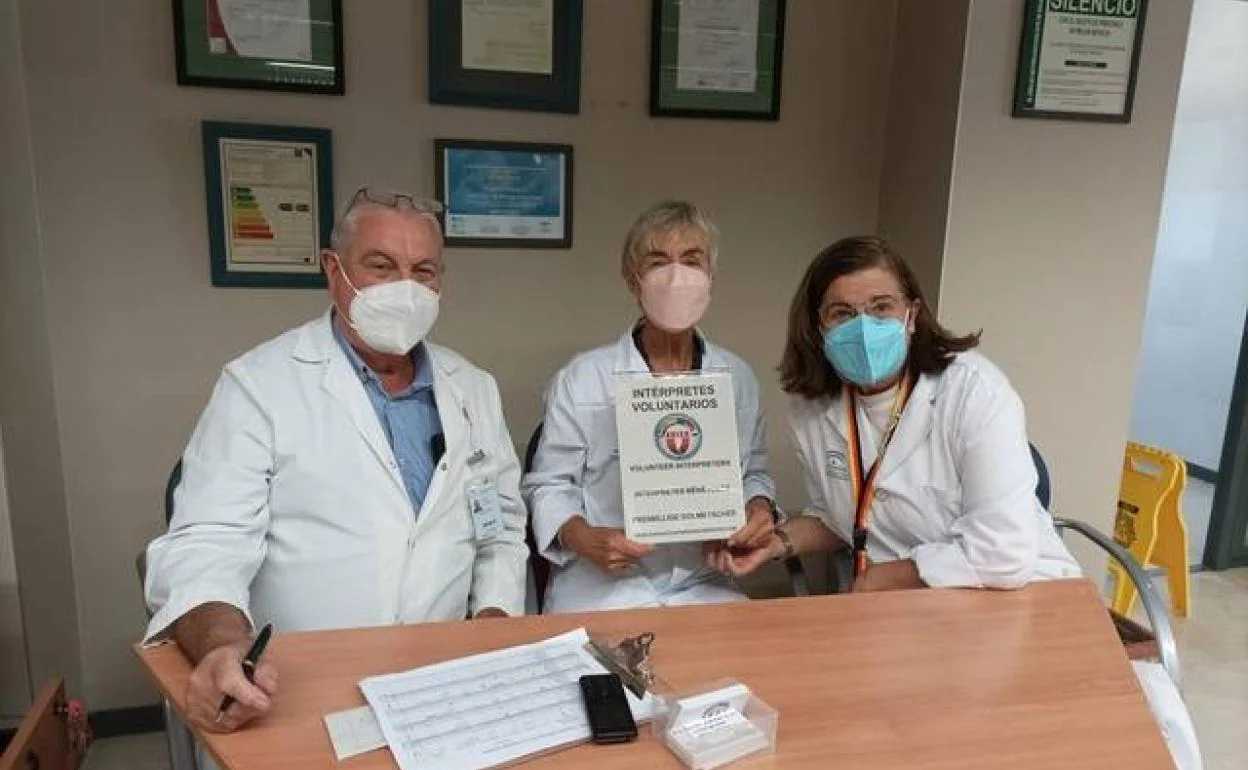Volunteer interpreters back in action at the Costa’s hospitals
At the start of the pandemic the regional government advised associations not to go into health centres, but they have now resumed their services
At the beginning of the Covid-19 pandemic in March 2020, the various volunteer interpreter associations that worked in a number of hospitals on the Costa del Sol had to stop offering an in-person service. They instead turned to the telephones and provided assistance to patients over the phone.
This followed guidance issued by the Junta de Andalucía which advised such associations not to enter health facilities. Although the recommendation was not to allow volunteers in, in desperate situations exceptions could be made, according to Christopher Cluderay, the president of Avisa (the Association of volunteer interpreters in the Axarquía).
However, in the last year they have gradually started to go back into the hospitals. Cluderay explained to SUR in English that following talks with management at the Axarquía hospital in Torre del Mar, the team has been working since early October.
“The hospital was cautious about us going back, especially as a lot of us are over 60 and therefore considered vulnerable,” Christopher said. However, he went on to say that the decision was made to allow the team back in. “Really I think we’re probably safer in the hospital than anywhere else because everyone has to wear a mask there. Outside, nobody is wearing them anymore.”
A warm welcome back
The Axarquía team now has 19 volunteers working at the Torre del Mar hospital and five at the health centre in Nerja. From Monday to Friday there are always two English speakers and one Geman speaker covering the service, from 8.30am to 2.30pm and they are located by the general information desk on the ground floor of the hospital, near the main entrance.
Christopher says that while a few volunteers have not returned, the team is more or less back to the same numbers as before Covid and that as well as English and German, the interpreters can also offer French and Dutch. He added both staff and patients alike have been “delighted” to see them back in the hospital. “A lot of patients have said thank goodness you’re back,” he reveals. Avisa always welcomes new volunteers, especially English and German speakers, he added.
Avisa also has a volunteer, Gloria Carrillo, who works in the Clínico and Carlos Haya hospitals in Malaga city. Alongside Gloria in the Clínico are three other volunteers who also returned in October, having had to stop when the pandemic started. María Jesús is one of these people and she explained they are there from 10am to 1pm, Monday to Friday and between them can cover English, French, German and Arabic.
Costa del Sol Hospital
At the Costa del Sol Hospital in Marbella, the Association Voluntary Interpreters Costa del Sol (Avics) president Vicki Rhodes told SUR in English that the team has been back for around a year already. “It started slowly but we’re back,” Vicki said.
The service is covered in two shifts, from 9.30am until 3pm and then from 3 until 8 or 9pm, depending on demand.
Vicki added that she is hoping to set up a group at the new hospital in Estepona when it opens and that they also have people are the Centro de Alta Resolución de Especialidades (CARE) hospital in Las Lagunas, Mijas.
Vicki, who has been a volunteer interpreter in Marbella for 30 years, and was one of the first people to offer her interpreting skills when the association was set up by Marion Winters, says that she’s “very happy to be back” and describes the place “like a second home”.
Like its Axarquía counterpart, Avics is also looking for new volunteers and especially Finnish, Norwegian, Danish, Swedish and Ukrainian, in addition to being fluent in English and Spanish. Anyone interested would need to be able to spare five hours for either one morning or afternoon each week.
Avics has an active Facebook page where further information about volunteering can be found and Vicki can be contacted: Avics Association Voluntarty Interpreters Costa del Sol.
For further information about Avisa: www.avisavoluntariosinterpretes.com.

